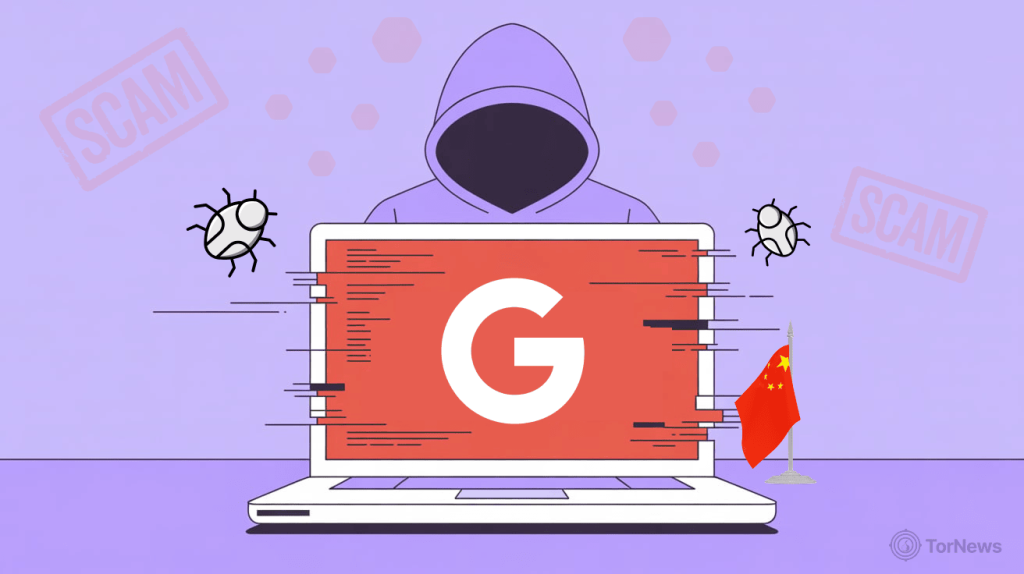-
Google announced it is deploying a new double strategy to tackle scammers by suing a Chinese-based hacking group.
-
At the same time, the tech giant partners with Congress on bipartisan bills to fight international cybercriminals.
-
Google said that the hacker group, Lighthouse, has scammed over 1 million victims across 120 countries.

Google has announced that it is deploying a brand new double technique to battle cyber scammers by suing a Chinese-based hacking gang, while also partnering with the US Congress on bipartisan bills to tackle international threat actors.
According to Google, the hacker gang Lighthouse has launched a significant SMS phishing attack, which it calls “smishing” after hacking into prominent brands like E-ZPass. Google noted that the hacking group exploits its victims’ systems to access financial information.
Google Launches New Double Strategy to Battle Scammers
It is worth noting that threat actors usually phish victims by sending text messages luring the unsuspecting individual to tap on a link and input their information.
These details can be banking credentials, email information, and other sensitive personal details. Also, these hackers tend to impersonate global brands, such as Google and other top firms, by posting their trademarks and services on fake websites.
Google’s general counsel, Halimah DeLaine Prado, commented on the case. She noted that scammers are sending text messages about an ‘unpaid road toll’ or their USPS packages being stuck. Prado mentioned that, not only are these spam, but they are also the funnel of a high-end worldwide scam that has duped thousands of victims out of millions of dollars.
In her statement, Prado said that Google is fighting back by taking legal actions to crack down on ‘Lighthouse’ operations, which is a huge ‘Phishing-as-a-Service’ scam group. At the same time, Google is adopting key bipartisan bills in the United States Congress to safeguard everyone from these illicit operations.
Google Adopts Bill to Crack Down on Cybercrime
According to Google’s announcement, the Lighthouse operation has duped over 1 million people in 120 nations, looting about 12.7 million USD and 115 million United States payment cards alone. Significantly, this marks five times the rate of these types of cyberattacks since 2020. This case is part of a global wave of sophisticated cyber scams. Just last week, a similar collaborative effort led Indian police to bust a massive ₹84 crore (approximately $10 million) cyber scam ring where Indian officials arrested 12 suspects. While the Indian case involved different tactics, it underscores the same global challenge: highly organized criminal groups targeting victims on a massive scale, prompting both corporate and law enforcement agencies worldwide to take aggressive action.
Coming back to Google’s latest crackdown on scams, the suit also looks at the structure of the operation, and the claims are brought under the Racketeer Influenced and Corrupt Organizations (RICO) Act, the Computer Fraud and Abuse Act, and the Lanham Act.
Google said it is also working with US Congress policymakers on ways to reduce scams and supported three bipartisan bills. According to Prado, this would help to introduce a decisive end to financial damage and harm wrought by international cybercriminals.
The first bill Google is adopting is the GUARD (Guarding Unprotected Aging Retirees from Deception) Act. This bill would empower both state and county law enforcement officers by allowing them to access funds from federal grants to conduct investigations into financial scams and fraud, particularly targeting retirees.
The second bill it is endorsing is the Foreign Robocall Elimination Act, which would develop a task force unit that will prioritize ways to identify illicit international robocalls and restrict them before they connect to American citizens.
Then, the third bill the tech giant is endorsing is the SCAM (Scam Compound Accountability and Mobilization) Act. This bill would build a national method of mitigating scam compounds, enforce sanctions, and support victims of human trafficking without these compounds.